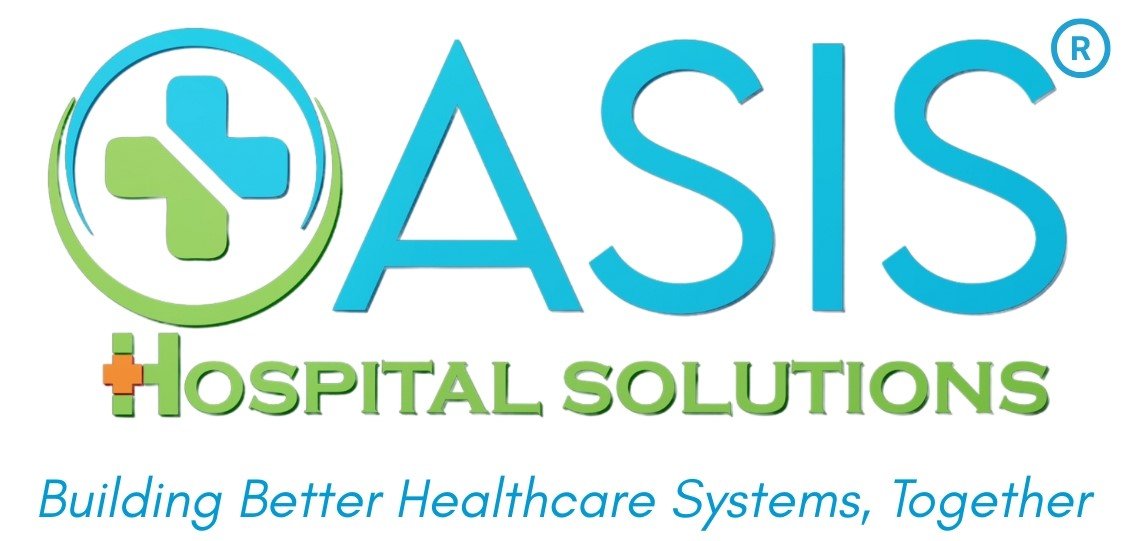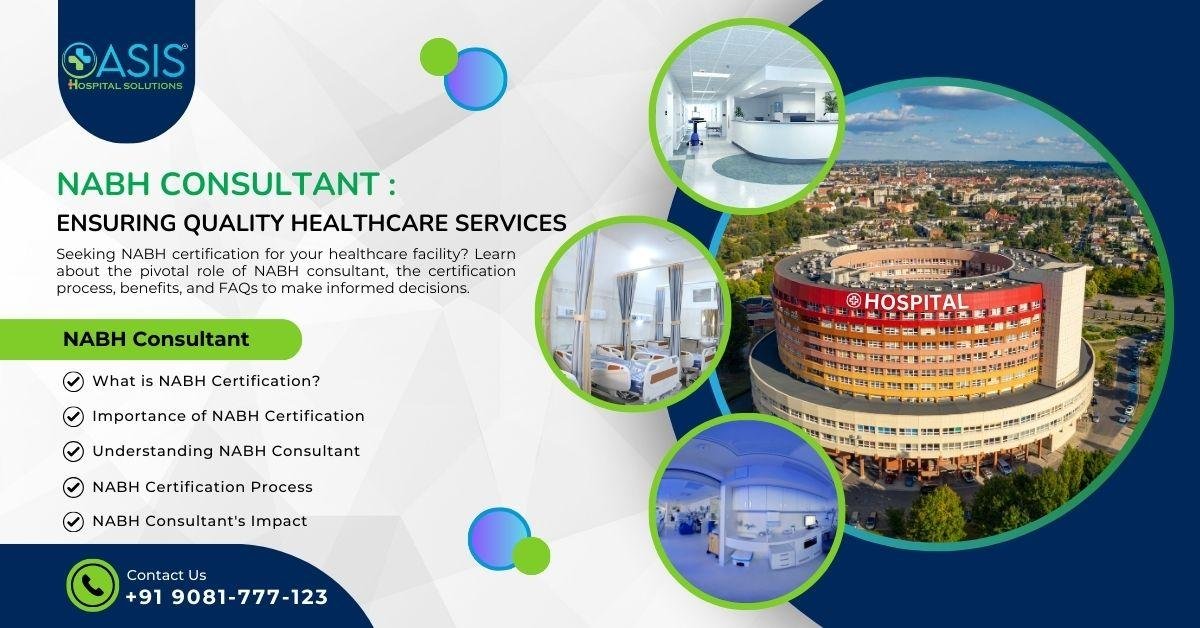Introduction
In the ever-evolving landscape of healthcare, maintaining stringent quality standards is crucial for ensuring optimal patient care. NABH (National Accreditation Board for Hospitals & Healthcare Providers) certification serves as a hallmark of excellence, indicating a healthcare facility’s commitment to upholding high-quality standards. At the heart of the NABH certification process lies the pivotal role played by NABH consultants, who serve as guides and facilitators in the journey towards achieving and maintaining accreditation.
What is NABH Certification?
NABH certification, established by the Quality Council of India, sets forth comprehensive standards for evaluating and accrediting healthcare organizations. It encompasses various parameters, including patient safety, quality of care, infrastructure, and management systems, to ensure that healthcare facilities deliver services of exceptional quality and safety.
Importance of NABH Certification
NABH certification holds immense significance for healthcare providers, patients, and stakeholders alike. For healthcare organizations, it serves as a testament to their commitment to quality improvement and patient-centric care. Patients, on the other hand, view NABH accreditation as an assurance of receiving standardized, safe, and high-quality healthcare services. Additionally, accreditation enhances the reputation and credibility of healthcare facilities, fostering trust among patients and attracting a broader patient base.
Understanding NABH Consultant
Roles and Responsibilities of NABH Consultant
NABH consultants play multifaceted roles in the accreditation process, offering expert guidance and support to healthcare facilities. Their responsibilities include conducting comprehensive assessments of existing systems and processes, identifying areas for improvement, developing tailored action plans, and facilitating the implementation of necessary changes. Additionally, they serve as liaisons between healthcare facilities and accreditation bodies, ensuring seamless communication and compliance throughout the accreditation journey.
Skills Required for NABH Consultants
Successful NABH consultants possess a diverse skill set encompassing expertise in healthcare quality management, regulatory compliance, and organizational leadership. Effective communication skills, attention to detail, analytical prowess, and the ability to collaborate with diverse stakeholders are essential attributes for navigating the complexities of the accreditation process successfully.
How to Choose the Right NABH Consultant?
Selecting the right NABH consultant is crucial for healthcare facilities embarking on the accreditation journey. Factors to consider include the consultant’s experience and track record in guiding organizations through the accreditation process, familiarity with industry best practices, and the ability to tailor strategies to meet the unique needs and challenges of each healthcare facility. Client testimonials, referrals, and certifications can provide valuable insights into the consultant’s competence and credibility.
NABH Certification Process
Steps Involved in Obtaining NABH Certification
The NABH certification process encompasses several stages, each requiring meticulous planning, execution, and evaluation. These stages include pre-assessment, gap analysis, development of quality management systems, implementation of corrective actions, internal audits, and final assessment by NABH assessors. Throughout the process, NABH consultants play a central role in guiding healthcare facilities, ensuring compliance with accreditation standards, and facilitating continuous quality improvement initiatives.
Common Challenges in NABH Certification Process
Navigating the NABH certification process can pose various challenges for healthcare organizations, ranging from resource constraints to resistance to change. Common hurdles include aligning existing processes with accreditation standards, addressing infrastructure deficiencies, fostering a culture of quality and safety, and sustaining compliance over time. However, with strategic guidance and support from experienced NABH consultants, these challenges can be effectively overcome, paving the way for successful accreditation.
Benefits of Hiring a NABH Consultant
Engaging the services of a qualified NABH consultant offers numerous benefits for healthcare facilities seeking accreditation. Consultants bring extensive experience and expertise in navigating the accreditation process, streamlining workflows, and optimizing systems to meet accreditation requirements. Their guidance ensures that healthcare organizations achieve accreditation efficiently, minimize disruptions to operations, and derive maximum value from the accreditation investment.
NABH Consultant’s Impact
Improving Healthcare Quality with NABH Consultancy
NABH consultants play a pivotal role in enhancing healthcare quality by implementing evidence-based practices, fostering a culture of continuous improvement, and promoting patient safety initiatives. Through comprehensive assessments, process optimization, and staff training, consultants help healthcare facilities deliver superior quality care, resulting in improved patient outcomes and satisfaction.
Cost-Effectiveness and Efficiency
While the initial investment in hiring a NABH consultant may seem significant, the long-term benefits far outweigh the costs. By streamlining processes, reducing errors, and enhancing operational efficiency, consultants help healthcare organizations realize cost savings, improve resource utilization, and achieve sustainable growth. Moreover, accreditation enhances the marketability and competitiveness of healthcare facilities, leading to increased patient volumes and revenue generation.
Enhancing Patient Trust and Satisfaction
NABH accreditation instills confidence in patients and stakeholders regarding the quality and safety of healthcare services. By adhering to rigorous standards and best practices, accredited facilities demonstrate their commitment to excellence and patient-centric care. As a result, patients experience improved outcomes, greater satisfaction, and increased trust in the healthcare provider, contributing to long-term loyalty and positive word-of-mouth referrals.
FAQs
- What is the role of a NABH consultant? A NABH consultant guides healthcare facilities through the accreditation process, offering expert guidance, support, and assistance in implementing quality improvement initiatives.
- How long does it take to obtain NABH certification? The duration of the certification process varies depending on factors such as the size and complexity of the healthcare facility, readiness for accreditation, and the efficiency of implementation. On average, the process can take anywhere from six months to a year to complete.
- What are the benefits of NABH certification? NABH certification offers numerous benefits, including enhanced credibility and reputation, improved patient safety and outcomes, streamlined processes, and increased operational efficiency. Accreditation also facilitates access to funding, partnerships, and collaborations, further supporting organizational growth and sustainability.
- How much does it cost to hire a NABH consultant? The cost of hiring a NABH consultant varies depending on factors such as the scope of work, level of expertise, and duration of engagement. Consultants may charge a fixed fee, hourly rate, or project-based fee, with costs typically ranging from moderate to high, depending on the consultant’s experience and reputation.
- Can a healthcare facility achieve NABH certification without a nabh consultancy? While it is possible for healthcare facilities to pursue NABH certification independently, engaging the services of a qualified consultant significantly enhances the likelihood of success. Consultants bring valuable expertise, experience, and guidance to the accreditation process, facilitating smoother implementation, compliance, and continuous improvement initiatives.
Conclusion
In conclusion, NABH consultants play a pivotal role in guiding healthcare facilities towards achieving and maintaining accreditation, thereby enhancing the quality, safety, and efficiency of patient care. Through their expertise, support, and guidance, consultants empower healthcare organizations to navigate the complexities of the accreditation process successfully and realize the myriad benefits of NABH certification. By investing in the services of qualified consultants, healthcare providers demonstrate their commitment to excellence and continuous improvement, ultimately benefiting patients, stakeholders, and the healthcare industry as a whole.



